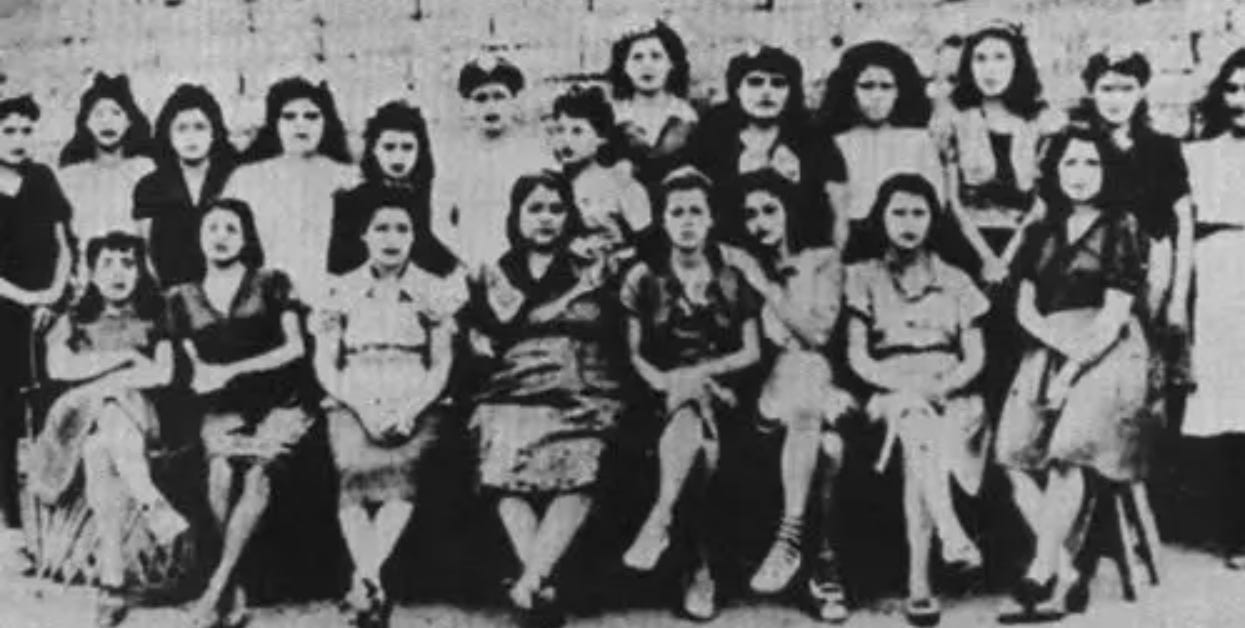Hell's Brothel: The Sadistic Tale of "Loma del Ángel" and the González Sisters
The disturbing tale of four sisters from rural Mexico who created a network of brothels that acted as part brothel and part concentration camp, leaving untold dead in their wake
Background
The González sisters, Delfina and María de Jesús, might have seemed like ordinary women from rural Mexico. However, behind their unassuming exterior lay one of the most notorious criminal empires in Mexico’s history.
Having operated a network of brothels during the 1950s and 60s, the sisters were responsible for some of the most chilling crimes ever uncovered in the country.
Their exploits, built on fear, manipulation, and horrific abuse, captivated the nation and eventually led to a sensational trial that shocked the world.
Early Life
The González Valenzuela sisters, also known as "Las Poquianchis," came from a strict, troubled background that seemed destined to shape their path toward becoming some of Mexico's most notorious criminals.
María Delfina, the eldest, was born in 1912. Over the years, she became the driving force behind their later criminal enterprise.
Following Delfina was María del Carmen, born in 1918. María Luisa, born in 1920, had the shortest involvement, leaving the business earlier than her sisters. María de Jesús, the youngest, was born in 1924 and was the last surviving sister, living until 1990.
Together, they grew up under the harsh rule of their father, Isidro Torres, a local police officer. He enforced strict, conservative values, forbidding the sisters from wearing makeup or socializing with boys.
As part of his discipline, Isidro reportedly locked the girls in jail cells if they disobeyed his rules. This abusive control, coupled with a life of crushing poverty, pushed the sisters to desire independence and financial freedom.
In the 1930s, after their father killed a man in a dispute, the family fled to San Francisco del Rincón in Guanajuato. This move only worsened the sisters' financial hardships. The sisters attempted to run a bar, which ultimately proved unsuccessful.
As the sisters turned to prostitution to support themselves, Delfina and María de Jesús began to form a plan that would go beyond mere survival. The business evolved from a local operation into a vast network spanning across Jalisco and Guanajuato and ultimately involved kidnapping, deception, and forced labor.
This early background set the stage for the sisters' criminal empire.
“El Ángel"
As the González Valenzuela sisters expanded their enterprise, they transformed their "El Ángel" ranch in Jalisco and properties across Guanajuato into centers for an extensive brothel network.
These establishments were highly profitable but completely exploitative. The sisters would lure young, impoverished women from rural areas with promises of legitimate work in larger towns. Many women were drawn by the hope of a stable income and a better life and accepted the offers to work as maids or waitresses.
Once they arrived, they would be trapped in there.
The González sisters, often with the assistance of local authorities and law enforcement personnel, controlled their victims with a combination of coercive tactics and physical confinement.
They imposed “debts” on the women, claiming they owed money for food, clothing, or their initial recruitment, making it nearly impossible for them to leave. The sisters also forced some women to take drugs, keeping them addicted and compliant.
The girls were subjected to strict control by the González sisters and their enforcer, Hermenegildo Zúñiga, known as "Captain Black Eagle." Delfina’s son, Ramón Torres, known as “El Tepo,” also served as the muscle in their operation, ensuring that no one dared to rebel or attempt escape.








